detail profile ren c3 a9 barjavel
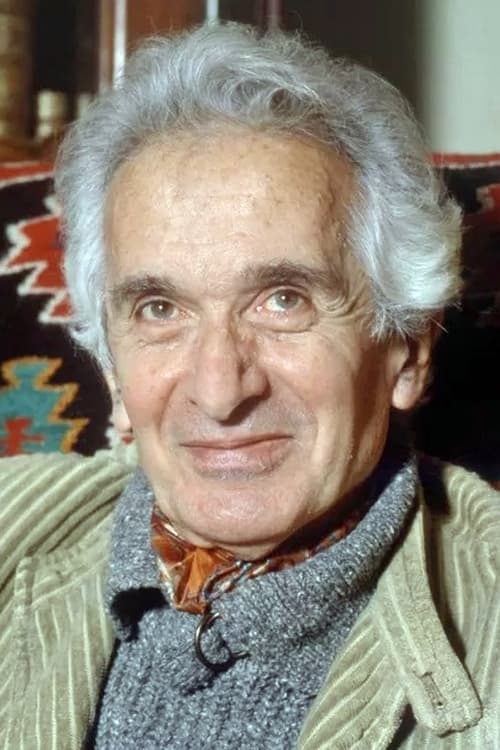
Riwayat Hidup
René Barjavel (24 January 1911 – 24 November 1985) was a French author, journalist and critic who may have been the first to think of the grandfather paradox in time travel.
He was born in Nyons, a town in the Drôme department in southeastern France.
He is best known as a science fiction author, whose work often involved the fall of civilisation due to technocratic hubris and the madness of war, but who also favoured themes emphasising the durability of love.
René Barjavel wrote several novels with these themes, such as Ravage (translated as Ashes, ashes), Le Grand Secret, La Nuit des temps (translated as The Ice People), and Une rose au paradis.
His writing is poetic, dreamy and sometimes philosophical.
Some of his works have their roots in an empirical and poetic questioning of the existence of God (notably La Faim du tigre).
He was also interested in the environmental heritage which we leave to future generations.
Whilst his works are rarely taught in French schools, his books are very popular in France.
Barjavel wrote Le Voyageur imprudent (1943), the first novel to present the famous Grandfather paradox of time travel: if one goes backwards in time and kills one of their ancestors before he had children, the traveller cannot exist and therefore cannot kill the ancestor.
Barjavel died in 1985 and was buried with his ancestors in Tarendol (commune) cemetery, opposite Mount Ventoux in Provence.
He used these place names in his books; Mount Ventoux appears as the site of the space base in Colomb de la lune, for example, and Tarendol is the name of the hero in the eponymous novel.
Source: Article "René Barjavel" from Wikipedia in English, licensed under CC-BY-SA.
Info Pribadi
Peran Yang Di Mainkan René Barjavel
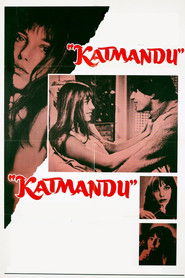 A rebellious sociallyconscious man travels to...
A rebellious sociallyconscious man travels to...Katmandu 1969
A rebellious socially-conscious man travels to Nepal to find his dead-beat dad. There, he meets Jane, a beautiful hippie girl hooked on drugs. He's forced to steal artefacts for his father's slimy employer to earn money to help Jane.
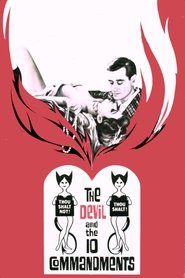 The film consists of seven roughly 15...
The film consists of seven roughly 15...The Devil and the Ten Commandments 1962
The film consists of seven roughly 15 minute episodes, each showing what will happen if one or more of the Ten Commandments will be broken: Jérome Chambard is warned that he will lose his job if he continues to swear; Françoise Beaufort enamored of a stripper calls on her only to find her married to a janitor who doesn't know what kind of dancing his wife performs; Denis, a Jesuit novice, leaves the order to avenge his sister's suicide, which was provoked by Garigny, who seduced her into prostitution and drug addiction; Philip buys a necklace for Micheline though he is bored with her; a young man find out that his real mother is not Madeleine, but actress Clarisse Ardant; Didier Marin, cashier of a bank, was fired by his boss; the Devil appears as a serpent for Jérome Chambard and the bishop are eating.
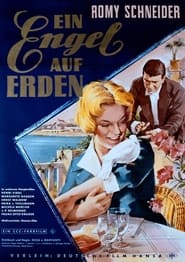 Heralded racing driver Pierre Chaillot has...
Heralded racing driver Pierre Chaillot has...An Angel on Wheels 1959
Heralded racing driver Pierre Chaillot has never noticed the pretty young flight attendant who dotes on him adoringly. But when his fiancée's infidelity drives him to the brink of suicide, Pierre's guardian angel takes the form of this stewardess to urge him to choose life. Though the angel confesses her divinity, Pierre is skeptical of the existence of angels. But, despite their difference, the two bond during her brief sojourn in human form.
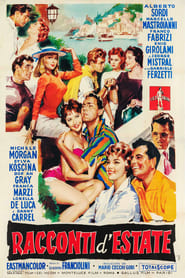 It is Summer It is the...
It is Summer It is the...Love on the Riviera 1958
It is Summer. It is the right time for love, especially in a most romantic place as Golfo del Tigullio. Different stories: Dorina looking for a rich lover; Clara who takes a fancy to the young Walter while her daughter Lina tries to save her; Aristarco who gave up his career to follow Ada's, but who likes Jacqueline; Renata who is offered by her husband to Ferrari to get money; Marcello who, extraditing Micheline to France, misses the train and falls in love with her.
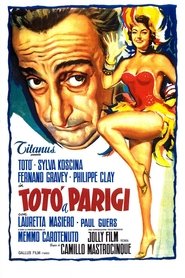 Ducloss son a worldly gangster is...
Ducloss son a worldly gangster is...Toto in Paris 1958
Duclos's son, a worldly gangster, is compromised in a case of which he is innocent. The proof of this innocence is in the hands of a "competitor", the Marquis de Chemantel de Beauvoiron, a misguided aristocrat. He asked for $ 10 million to cede the document. Duclos will then imagine Chemantel contracting $ 10 million in life insurance for his son. As he discovered in Rome a tramp, a look-alike of the marquis, he will bring this man to Paris and arrange for him to die accidentally.
 Le Cas Du Dr Laurent The...
Le Cas Du Dr Laurent The...The Case of Dr. Laurent 1957
Le Cas Du Dr. Laurent (The Case of Dr. Laurent) stars Jean Gabin as a Paris-based doctor who tries to spread the gospel of Natural Childbirth. Working in a cloistered rural community, Gabin runs up against the stone walls of fear and prejudice. His theories are proven sound when unwed mother Nicole Courcel gives birth within Gabin's methodology. The childbirth sequence is filmed straight-on with a delicate combination of taste and frankness. Nonetheless, the lurid ad campaign of Cas Du Dr. Laurent sensationalized this sequence all out of proportion.
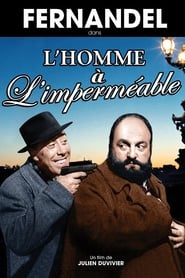 In the absence of his wife...
In the absence of his wife...The Man in the Raincoat 1957
In the absence of his wife, a clarinet player is induced by a friend to meet a call girl, but arrived after a crime. Perceived by some people leaving the scene of the crime covered by his raincoat, he became the only suspect for the police. His only hope is to discover the murderer before is name is mentionned publicly, specially in front of his wife.
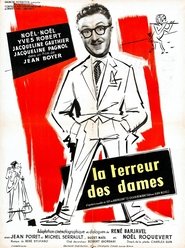 Aim Morin a goodnatured bookseller is...
Aim Morin a goodnatured bookseller is...The Terror with Women 1956
Aimé Morin, a good-natured bookseller, is also one of the candidates in the local elections of his small town. He is well-liked by most but he also has political enemies. Among them is Lagarde, a journalist close to the latter. Lagarde takes advantage of Morin being on holiday in Paris to try and tarnish his reputation. His machination unfortunately works and poor Aimé finds himself mistaken for a sex maniac.
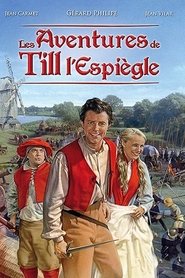 In the 16th century as Flanders...
In the 16th century as Flanders...Bold Adventure 1956
In the 16th century, as Flanders is invaded by the Spanish, Till the Mischievous uses stratagems to enter the service of Ferdinand Alvare de Toledo, Duke of Alba, and from there organize resistance against the invaders.
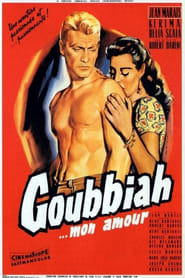 Goubbiah is a Yugoslav sponge fisherman...
Goubbiah is a Yugoslav sponge fisherman...Goubbiah and the Gipsy Girl 1956
Goubbiah is a Yugoslav sponge fisherman. He loves Trinida, but she is promised to Peppo, the village drunkard. Jao tries to keep Goubbiah away from his daughter.
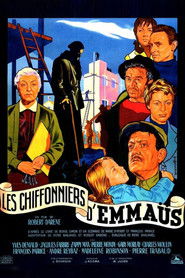 The Emmas community opened and functioned...
The Emmas community opened and functioned...The Ragpickers of Emmaus 1955
The Emmaüs community opened and functioned thanks to the generous impetus of Abbé Pierre Groues, bringing together a cross-section of the underprivileged: unemployed truck drivers, former paratroopers, young people leaving prison, etc., and underprivileged families. The "ragpickers" manage to make a bit of money by practicing the art of "chine", while the abbé tries his hand at winning radio games. The accident and death of one of them will unite the Emmaus companions even more.
 A terminally ill Mr Bard a...
A terminally ill Mr Bard a...Strange Desire of Mr. Bard 1954
A terminally ill Mr. Bard, a casino bus driver forced to quit his job, miraculously wins a fortune playing roulette. Instantly becoming a millionaire, he wants to fulfill his life's dream: to become a father. This plan is opposed by his greedy relatives who would go any low to take this money away from him. They are being led by a small-time crook. Mr. Bard's natural shyness and good heart lead him to the journey of self-exploration and finding his true love.
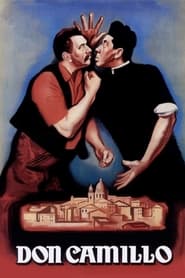 In a village of the Po...
In a village of the Po...The Little World of Don Camillo 1952
In a village of the Po valley where the earth is hard and life miserly, the priest and the communist mayor are always fighting to be the head of the community. If in secret, they admired and liked each other, politics still divided them as it is dividing the country. And when the mayor wants his "People's House"; the priest wants his "Garden City" for the poor. Division exist between the richest and the poorest, the pious and the atheists and even between lovers. But if the people are hard as the country, they are good in the bottom of there heart.
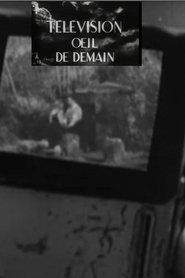 Tlvision oeil de demain predicted smartphones...
Tlvision oeil de demain predicted smartphones...Télévision, œil de demain 1947
Télévision, oeil de demain predicted smartphones and video calling. The film was based on a premise from the science fiction author René Barjavel, called Cinema Total, 1944.
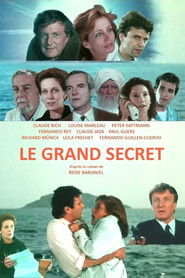
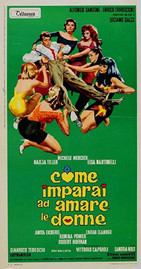 An erotic comedy about the many...
An erotic comedy about the many...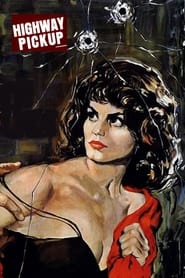 An escaped convict makes a remote...
An escaped convict makes a remote...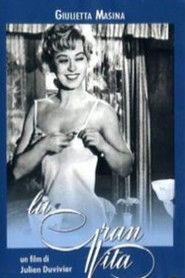 Doris Putzke is fond of dating...
Doris Putzke is fond of dating...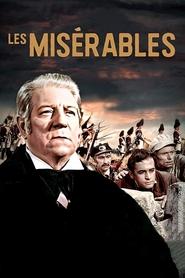 In 19th century France Jean Valjean...
In 19th century France Jean Valjean...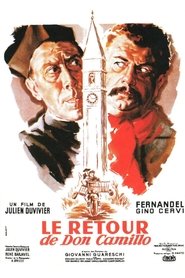 Energetic priest Don Camillo returns to...
Energetic priest Don Camillo returns to...